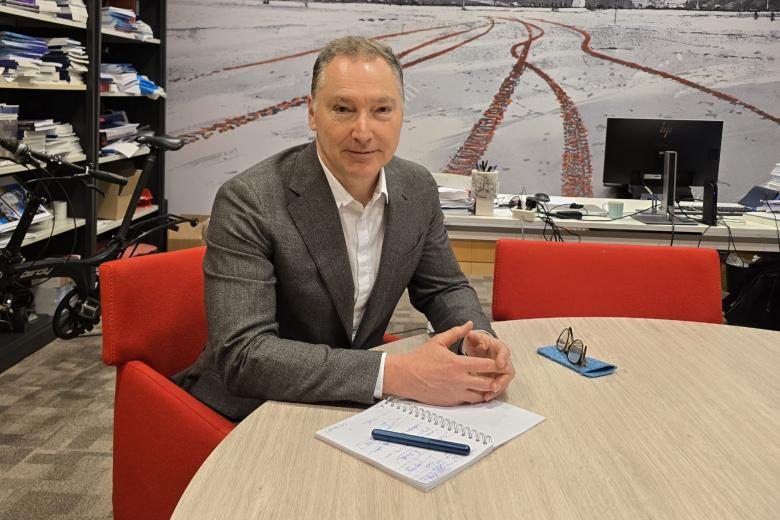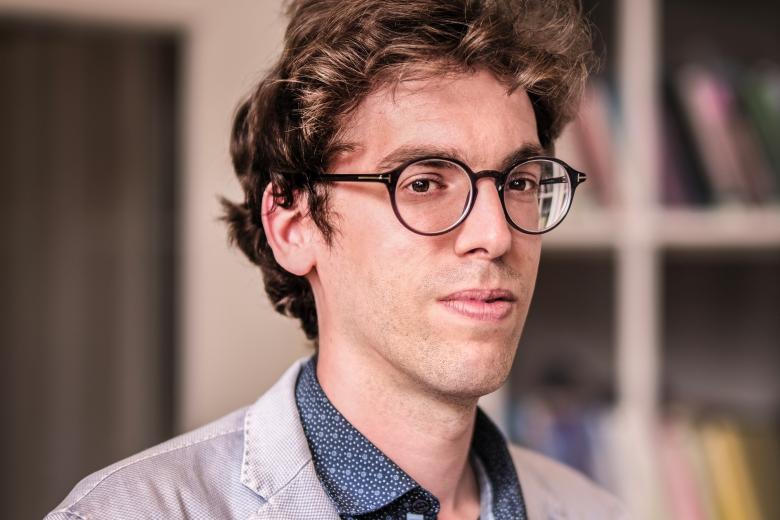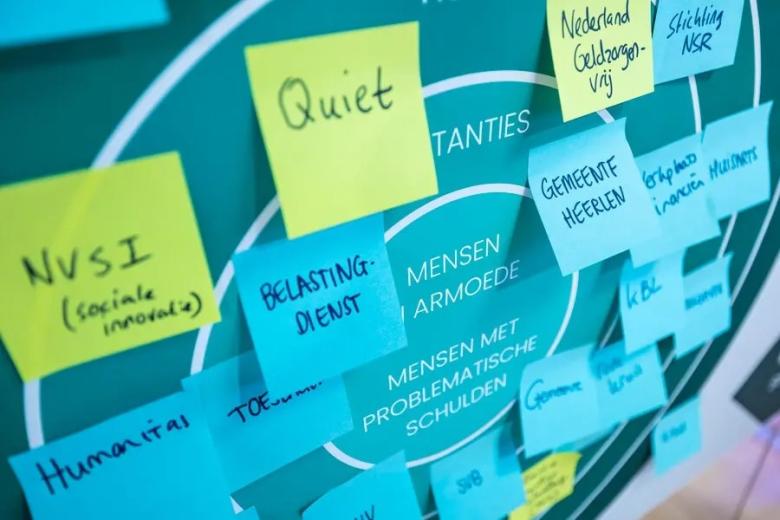Our failing memory
A memory that does not seem to coincide with reality is innocent enough in everyday life. Indeed, we all experience blind spots in our memory every day that we fill in with what probably happened. But in court, it is important to get the facts straight. That is why Dr Henry Otgaar of Maastricht University examines how memories are formed, influenced and can even be completely made up.
Imagine that you are sexually abused by a family member, or by Bill Cosby. Out of shame or maybe because you were pressured, you never talk about it. If you are asked directly whether it happened, you deny it. Then a few years later, it all comes out in the open. “Scientific research now shows that the years of denial affect the quality of memory”, says Henry Otgaar, of the UM Department of Forensic Psychology. “You can then ask what’s the value of such a statement.” Otgaar discovered that denial leads to forgetting specific details, or ‘denial-induced forgetting’. “That’s a bad strategy as a victim; you can better come forward earlier, however difficult it may be. Your memories deteriorate with age, as does the likelihood that the perpetrator will be convicted.”
‘Non-believed memories’
Another phenomenon he explores is memories that you yourself believe could not really be true, or ‘non-believed memories’. “Some people have vivid memories of when they were a child and saw Sinterklaas on the roof with his horse. They really see the image in their head, while as an adult they’re absolutely sure it can’t be real. Our research shows that having mental images with a memory has less of an effect on your actions than what you believe happened. We'd like to figure out if what we believe is just as easy to manipulate as what we say we remember, or maybe even easier. That is of course interesting in the courtroom.”
There are different ways to research memory. One way is the implantation method. A subject is told by the researcher, for instance, that his parents said that as a child he was bitten by a dog. “What do you remember about that?”, asks the researcher. After a few conversations, 30 to 40 per cent of the subjects say that they’re able to remember it and come up with additional details. Henry Otgaar: “They have very detailed stories about something they haven’t experienced, because we checked with their parents. And when we tell them afterwards that the story was made up, 30 to 40 per cent still insist that they remember it vividly. To them, it feels like a real memory.” And rightly, because neuroscientific research has shown that brain activity when retrieving these false memories is the same as with real memories.
Pseudo-memories
Another research method shows how easily pseudo memories are also created. You give subjects a list of words that are alike: ‘tears, weeping, whimpering, baby, bellowing, screaming, wet’. Then you ask if they heard the word ‘crying’. Otgaar: “By associating these things, many people say ‘yes’. In this way, our memory spontaneously fills in blind spots every day, with adults more so than with children because adults can associate better and have more knowledge. It’s often thought that children are less reliable witnesses, but that depends completely on the method of questioning.”
In crime series on TV, is forensic evidence in the form of DNA sometimes there for the taking, but that is not often the case in reality, as Henry Otgaar knows. “In reality, you often only have witnesses, and a judge has to assess whether or not they’re trustworthy. We are regularly called upon to help with this.”
The results of scientific research are also translated into practice in other ways. Until a few years ago, dolls that were ‘anatomically correct’ were used in the questioning of children in the Netherlands. Children had to designate on the doll, for instance, where they were abused. Otgaar: “My research has shown that dolls provoke fantasy play behaviour, which is misinterpreted. Our recent research suggests that it is better to let children draw what happened. Then they work actively with their own memory, and afterwards they can talk about it more easily. This is still in its infancy, but on the basis of previous research anatomically correct dolls are almost no longer used in the questioning of children.”
Repression is a myth
“If someone suddenly remembers something from a long time ago, it is said that he or she has repressed it the whole time. But that doesn’t really exist”, says Otgaar. “It may be that someone hasn’t thought about it for a long time, but that is something different than repression. There are many studies that show that if you experience something bad, you can actually remember it very well. From an evolutionary perspective, that would also be strange; our memory is designed to increase our chance of survival.”
Photographic memory does not exist
“With a photographic memory, you would be able to remember an event as a photograph or movie. But that also doesn’t exist”, according to Otgaar. “The memory is reconstructive. We experience something, and we remember what is important to us at that moment. When retrieving the memory, we have to make a reconstruction of what happened; we have to put the pieces of the puzzle back together, and that never goes flawlessly. Then we fill in the missing pieces based on our expectations and knowledge. This is usually goes well, but it also often goes wrong. And in everyday life that’s not an issue, but in the courtroom it is.”
By: Femke Kools
About Henry Otgaar
Dr Henry Otgaar studied psychology at Maastricht University, where he graduated cum laude in 2009 with his thesis ‘Children's Memory: Treasure or treachery of the mind?’. He works as a researcher and lecturer at the Department of Forensic Psychology, one of the largest groups in the world in this field. Forensic psychologists, unlike clinical psychologists, specialise in the diagnosis and treatment of perpetrators and victims of crime. In addition to his work at UM, Henry Otgaar has a part-time appointment at City University London, and regularly testifies as an expert witness in court cases. He is a member of the Landelijke Expertisegroep Bijzondere Zedenzaken (National Expertise Group for Special Moral Cases), a committee under the National Police, which investigates sexual abuse cases.
Also read
-
Ronald Janse appointed as new dean of Maastricht University Faculty of Law
The Executive Board of Maastricht University is delighted to announce the appointment of Prof. Ronald Janse as dean of the Faculty of Law.
-
Massimiliano Simons awarded funding for innovative art–science project on hybrid plants
"Entangled Genes: Sharpening the Public Debate on Hybrid Plants” is a new artistic research project that aims to deepen societal reflection on genetically modified plants.
-
HIP makes government communication more human
The ELSA Lab Poverty & Debt is developing, together with HIP, a tool that makes letters easy to understand without compromising their legal validity. HIP stands for Clear, Intelligent, and Productive and was developed in collaboration with the Brightlands Smart Services Campus and PNA Group.